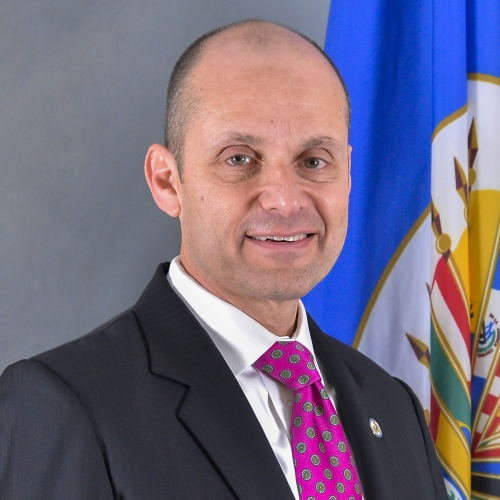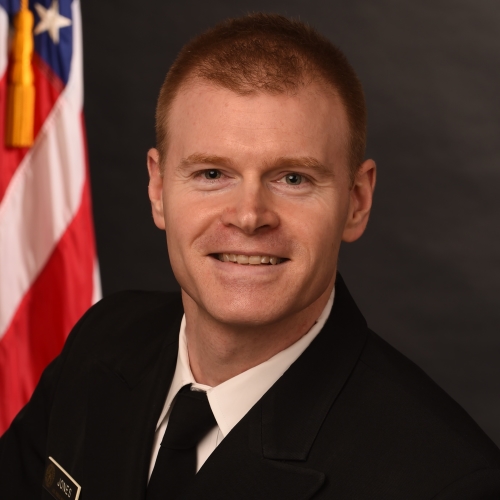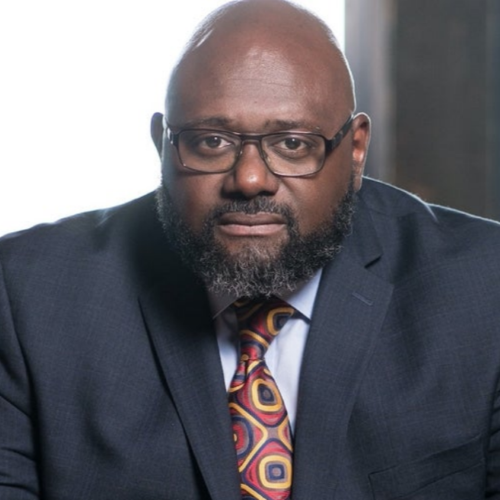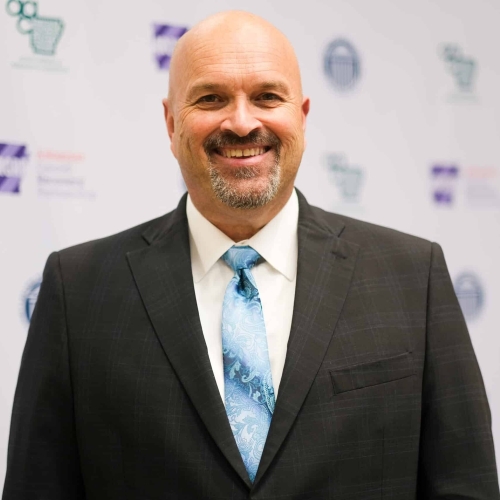Keynote Speakers
Allison Arwady | Ambassador Adam Namm | Brian Morales | Chris Jones | Joel Johnson | Kirk Lane
Allison Arwady, MD, MPH
 Allison Arwady is the director of the National Center for Injury Prevention and Control, where she leads CDC’s innovative research and science-based programs to prevent injuries and violence and to reduce their consequences.
Allison Arwady is the director of the National Center for Injury Prevention and Control, where she leads CDC’s innovative research and science-based programs to prevent injuries and violence and to reduce their consequences.For over 30 years, the Injury Center has been at the forefront of addressing some of today’s most pressing public health challenges, such as suicide, drug overdose, and adverse childhood experiences. In addition to tracking trends of injury and violence nationally, the Injury Center also directs cross-cutting programs with tribal communities, community partners, and health departments.
Dr. Arwady previously served as the commissioner of the Chicago Department of Public Health, leading the health department of the nation's third-largest city, including through the COVID-19 pandemic. Prior to that, she spent four years as Chicago's chief medical officer, overseeing the department's behavioral health and disease control work.
Under her leadership, Chicago's behavioral health team established dozens of innovative programs and partnerships in substance use and violence prevention, as well as mental health promotion and linkage to care. For the first time, Chicago embedded mental health professionals into 911 response; coordinated and funded a citywide network of no-barrier mental health clinical providers; and launched new behavioral health supports in homeless shelters, libraries, schools, food pantries, clinics, and more, while working to decrease stigma and increase access to mental health supports.
Dr. Arwady has received local and national recognition for her strong leadership and communication skills. Earlier in her career, as an Epidemic Intelligence Service officer based at the Illinois Department of Public Health, she responded to disease outbreaks across the state as well as CDC responses in Saudi Arabia (Middle East Respiratory Syndrome) and Liberia (Ebola).
Dr. Arwady has a bachelor's degree from Harvard University, a master's degree in public health from Columbia University, and she completed medical school and clinical training at Yale University.
Dr. Arwady is a board-certified internal medicine physician and pediatrician and continues to see primary care patients regularly.
Ambassador Adam Namm
 Ambassador Adam Namm was appointed the Executive Secretary of the Inter-American Drug Abuse Control Commission (CICAD) of the Organization of American States (OAS) on December 1, 2016, following a distinguished 30-year career in the U.S. diplomatic service, including serving as U.S. Ambassador to Ecuador from 2012 to 2015.
Ambassador Adam Namm was appointed the Executive Secretary of the Inter-American Drug Abuse Control Commission (CICAD) of the Organization of American States (OAS) on December 1, 2016, following a distinguished 30-year career in the U.S. diplomatic service, including serving as U.S. Ambassador to Ecuador from 2012 to 2015.Immediately prior to joining the OAS, Ambassador Namm was the Director of the U.S. Department of State’s Office of Management Policy, Rightsizing and Innovation, a position with a rank equivalent to Assistant Secretary. In this role, Ambassador Namm analyzed and recommended management policy changes, ensured compliance with the statutory mandate that the Department of State rightsize the U.S. Government’s overseas diplomatic presence, and led innovative cost-containment and greening efforts.
As U.S. Ambassador to Ecuador, Ambassador Namm worked to strengthen ties between the two countries, which enjoy almost 200 years of diplomatic relations. Highlights of Ambassador Namm’s tenure include growth in the bilateral trade relationship to $19 billion annually (the U.S. is Ecuador’s number one trading partner), strong cooperation in the fight against narco-trafficking and human trafficking, and an increase in public diplomacy programs, including student exchanges.
Before being posted to Ecuador, Ambassador Namm served as Director of the Department of State’s Bureau of Overseas Buildings Operations from 2008-2011, a position with a rank equivalent to Assistant Secretary. In this role, he managed a $2-billion annual budget and 1,200 staff engaged in the construction, maintenance, purchasing, and leasing of U.S. diplomatic facilities worldwide. During Ambassador Namm’s tenure, the Department of State opened 24 new embassy and consulate facilities.
Ambassador Namm’s career with the Department of State also included tours in Islamabad, Bogota, Dhahran, and Santo Domingo, as well as numerous assignments in Washington, D.C.
Ambassador Namm holds an A.B. degree in International Relations from Brown University, and a M.S. in National Security Strategy from the National War College of the United States. As part of his undergraduate studies, Ambassador Namm spent one academic year in Paris, France. Married with two children, Ambassador Namm speaks Spanish and some French, plays jazz and blues piano, and enjoys swimming and tennis.
Brian Morales
 Brian Morales is the Chief of the Countenarcotics Branch for the U.S. Department of State, working within the Bureau of International Narcotics and Law Enforcement Affairs, Office of Global Programs and Policy (INL/GPP). ?As Chief of the Counternarcotics Branch, he oversees two units -- Drug Demand Reduction and Drug Supply Reduction, focused mostly on synthetic drugs.? He has worked on the issues of substance use prevention and treatment for 18 years, developing and implementing projects with countries in Asia, Africa, and Latin America.? Mr. Morales has collaborated with governments and civil societies to strengthen national treatment and prevention systems and help peoples around the world recover from the chronic and relapsing disease of substance use disorders.
Brian Morales is the Chief of the Countenarcotics Branch for the U.S. Department of State, working within the Bureau of International Narcotics and Law Enforcement Affairs, Office of Global Programs and Policy (INL/GPP). ?As Chief of the Counternarcotics Branch, he oversees two units -- Drug Demand Reduction and Drug Supply Reduction, focused mostly on synthetic drugs.? He has worked on the issues of substance use prevention and treatment for 18 years, developing and implementing projects with countries in Asia, Africa, and Latin America.? Mr. Morales has collaborated with governments and civil societies to strengthen national treatment and prevention systems and help peoples around the world recover from the chronic and relapsing disease of substance use disorders.Over the past year, Mr. Morales coordinated Secretary Blinken’s 2023 Ministerial on Synthetic Drug Threats and the subsequent Global Coalition monthly meetings of 1,500 government representatives from 156 countries.? Additionally, he led the effort to establish the International Society of Substance Use Prevention and Treatment Professionals (ISSUP) in 2015, bringing together the global treatment and prevention workforce into an association that promotes professionalization through training and credentialing.? In 2016, he collaborated with international partners to launch the International Consortium of Universities for Drug Demand Reduction (ICUDDR) to promote academic study around the world in addiction science.? In 2020, he worked with ICUDDR and the University of Kansas City to create the International Technology Transfer Centers (ITTCs) network to adopt a systems approach in building a public health and criminal justice system.? He also funded the development of a global agency for credentialing of addiction professionals in 2010 – the Global Centre for Credentialing and Certification (GCCC).
In other posts at the U.S. Department of State, Mr. Morales has covered issues including democratic governance and counter-terrorism, and served as a U.S. representative to the Organization of American States, the United Nations Office on Drugs and Crime, the African Union, and other multilateral bodies.? Prior to the federal government, he also worked at the Pan American Health Organization.? Mr. Morales earned both a M.A. in Latin American Studies and B.S.F.S. in International Affairs from Georgetown University.
CAPT Chris Jones, Pharm.D., Dr.P.H., M.P.H.
 Christopher M. Jones (CAPT U.S. Public Health Service) is the Director of the Center for Substance Abuse Prevention (CSAP). CAPT Jones brings a wealth of experience to SAMHSA having led substance use, mental health, and injury and violence prevention policy, program, and research activities for more than a decade. Prior to becoming Director of CSAP, CAPT Jones served as the director of the National Center for Injury Prevention and Control at the Centers for Disease Control and Prevention. In this role, he provided scientific leadership and overall management of the Center, including driving the Center’s strategic direction and advancing the Center’s priorities of preventing drug overdose, suicide, and adverse childhood experiences. At CDC, CAPT Jones previously served as Deputy Director of the Injury Center and as Associate Director for Strategy and Innovation.
Christopher M. Jones (CAPT U.S. Public Health Service) is the Director of the Center for Substance Abuse Prevention (CSAP). CAPT Jones brings a wealth of experience to SAMHSA having led substance use, mental health, and injury and violence prevention policy, program, and research activities for more than a decade. Prior to becoming Director of CSAP, CAPT Jones served as the director of the National Center for Injury Prevention and Control at the Centers for Disease Control and Prevention. In this role, he provided scientific leadership and overall management of the Center, including driving the Center’s strategic direction and advancing the Center’s priorities of preventing drug overdose, suicide, and adverse childhood experiences. At CDC, CAPT Jones previously served as Deputy Director of the Injury Center and as Associate Director for Strategy and Innovation.During his career, CAPT Jones has served in a variety of leadership roles in the U.S. Department of Health and Human Services (HHS). Among these roles, he served as the first director of the National Mental Health and Substance Use Policy Laboratory at SAMHSA, as the acting Associate Deputy Assistant Secretary for Science and Data Policy and director of the Division of Science Policy in the Office of the Assistant Secretary for Planning and Evaluation (ASPE) at HHS, and senior advisor in the Office of the Commissioner at the U.S. Food and Drug Administration (FDA).
CAPT Jones received a Bachelor of Science degree from Reinhardt College, a Doctor of Pharmacy degree from Mercer University, a Master of Public Health degree from New York Medical College, and a Doctor of Public Health in Health Policy from The George Washington University Milken Institute School of Public Health. Dr. Jones is a captain in the U.S. Public Health Service and has authored more than 100 peer-reviewed publications on the topics of substance use, drug overdose, adverse childhood experiences, and mental health.
Joel Johnson
 TASC President and CEO Joel K. Johnson is an advocate for individuals and communities that are dealing with trauma, substance use disorders, mental health challenges, family disconnection, and social, racial, and economic injustice. From the front lines of clinical care to nonprofit executive leadership, he has maintained a steady focus on ensuring health, dignity, and opportunity for all.
TASC President and CEO Joel K. Johnson is an advocate for individuals and communities that are dealing with trauma, substance use disorders, mental health challenges, family disconnection, and social, racial, and economic injustice. From the front lines of clinical care to nonprofit executive leadership, he has maintained a steady focus on ensuring health, dignity, and opportunity for all.With a multifaceted approach of program services, public policy, and community partnerships, Joel leads TASC’s efforts to address the everyday realities and structural barriers that impede people’s opportunities to thrive.
An internationally respected expert in behavioral health, Joel was elected in 2021 to the board of directors of the National Association of Addiction Treatment Providers (NAATP), as well as to the boards of both the Illinois Association on Behavioral Health (IABH); and Friends of ISSUP, the United States chapter of the International Society of Substance Use Professionals, in 2023. In 2024, Joel was appointed to the Cook County (IL) Commission on Social Innovation. Additionally, he serves on the City of Chicago Board of Health, a nine-member body that advises the mayor on public health matters. He also was named to both the Cook County Equity Fund Taskforce, which advises the county board president's administration on strategic investments to address historical disparities and disinvestment in Black and Latinx communities, as well as the Illinois Opioid Remediation Advisory Board (IORAB), which makes advisory recommendations to the Governor’s Opioid Prevention and Recovery Steering Committee regarding the use of the 55% of settlement proceeds that are allocated to the Illinois Opioid Remediation Trust Fund (Fund). In this capacity, Joel is chairman of IORAB Access and Equity workforce.
Prior to becoming TASC’s top executive in March 2021, Joel served as executive vice president of Friend Health (FH), a federally qualified health center, and concurrently as president of Human Resources Development Institute (HRDI), a large, Chicago-based behavioral health service provider and subsidiary of FH. He served as HRDI’s chief administrative officer for two years before being promoted to president and CEO in 2011.
Preceding his work with HRDI, Joel served for nearly five years as chief operating officer of SOS Children’s Villages Illinois, a boutique foster care/child enrichment organization that focuses on keeping sibling groups intact during their tenure in the foster care system. Previously, he served as Midwest region director for the Child Welfare League of America; assistant child welfare director for Chicago Commons; outpatient therapist for the Drug Intervention Service Center (D.I.S.C.) Village of Tallahassee, Florida; and health educator for the Chicago Department of Health School-Based Initiative.
Joel is a member of The Economic Club of Chicago, The Business Leadership Council (BLC), Chicago United, and a Life Member of Alpha Phi Alpha Fraternity, Inc., serving as Executive Advisor to the General (International) President. A native of Chicago, he earned the Chicago Defender’s Men of Excellence award in 2014. Joel is a graduate of Florida A&M University with a Bachelor of Science in business administration and Master of Education in counseling.
Kirk Lane
 Kirk Lane serves as the Director of the Arkansas Opioid Recovery Partnership, an organization formed by the Arkansas Association of Counties and the Arkansas Municipal League to administer opioid abatement funds derived from opioid settlement funding awarded to the cities and counties of Arkansas. Before this, he served as the Arkansas State Drug Director from 2017 to 2022. Director Lane also has 33 years of experience in law enforcement serving with the Pulaski County Sheriff’s Office and as the Chief of Police for the City of Benton, Arkansas.
Kirk Lane serves as the Director of the Arkansas Opioid Recovery Partnership, an organization formed by the Arkansas Association of Counties and the Arkansas Municipal League to administer opioid abatement funds derived from opioid settlement funding awarded to the cities and counties of Arkansas. Before this, he served as the Arkansas State Drug Director from 2017 to 2022. Director Lane also has 33 years of experience in law enforcement serving with the Pulaski County Sheriff’s Office and as the Chief of Police for the City of Benton, Arkansas.He has attended the University of Virginia and University of Arkansas Little Rock. He is a graduate of the Arkansas Law Enforcement Academy, the Drug Enforcement Administration’s Drug Commander’s Academy, FBI LEEDA, and the FBI National Academy 197th session.
Director Lane currently serves on the National Board of Directors for the National Community Anti-Drug Coalitions of America (CADCA) and the Executive Board of the Gulf States High Intensity Drug Trafficking Area program.
He is the recipient of numerous awards in his field including the 2021 Ramstead/ Kennedy Award for his leadership in the field of Recovery.

